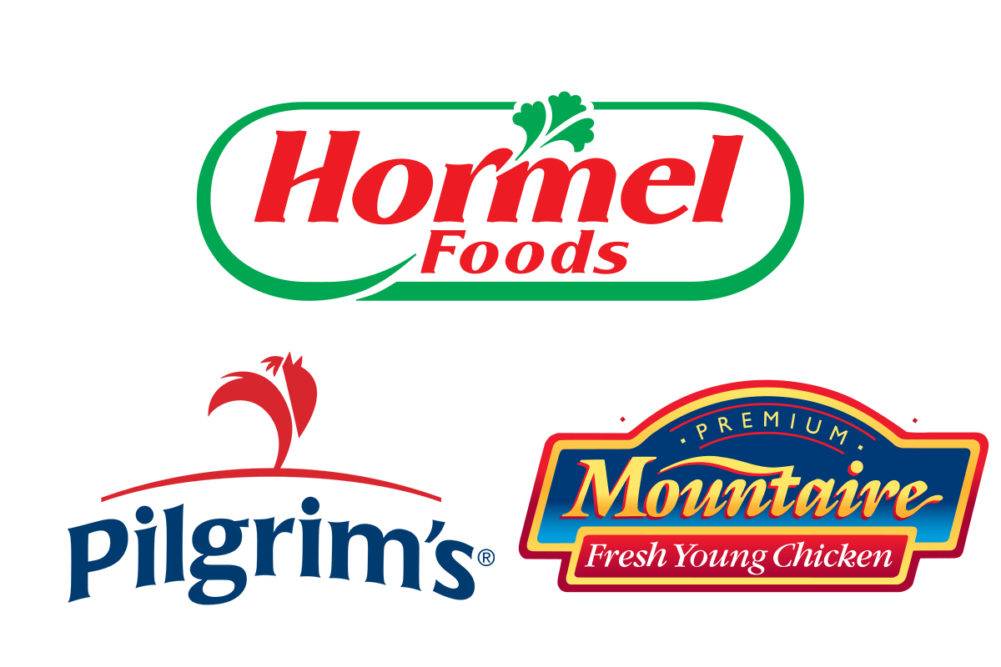Industry Overview: A Surge in Protein Demand
The Zacks Food – Meat Products industry, encompassing major players such as Tyson Foods, Hormel Foods, and Pilgrim’s Pride, is witnessing a robust growth in consumer demand for protein-rich products. This trend is largely driven by a heightened awareness of health and wellness among consumers. Companies are capitalizing on this trend by diversifying their product lines, expanding their production capacities, and venturing into the plant-based meat alternatives sector.
Strategic Responses to Market Trends
Embracing Plant-Based Alternatives
As consumers increasingly turn towards health-conscious eating habits, the interest in protein-rich diets has surged, benefiting meat companies. This shift is further supported by the rising popularity of ketogenic and other high-protein diets among fitness enthusiasts. Additionally, the demand for plant-based meat alternatives is growing, driven by a shift towards more sustainable and health-conscious eating practices. Meat industry players are responding by innovating and expanding their offerings in this rapidly growing segment.
Expansion and Innovation
To keep pace with the dynamic market demands, companies within the industry are actively expanding their manufacturing capabilities and exploring strategic partnerships and acquisitions. These efforts are aimed at not only increasing production capacity but also enhancing product diversity and market reach. Automation and digital transformation are also key focuses, enabling companies to improve efficiency and adapt to the evolving consumer landscape.
Challenges and Counterstrategies
Navigating Cost Inflation and Market Competition
Despite the positive trends, the industry faces significant challenges, particularly from cost inflation, though there is a sign of moderation in this trend. Companies continue to grapple with the complexities in the beef segment, including fluctuating consumer preferences and economic uncertainties which have led to a cautious consumer spending behavior.
Adapting Production to Market Conditions
In response to these challenges, companies have strategically adjusted their production volumes and operational strategies according to market conditions in different regions. This includes scaling back on production in areas facing intense competition or market saturation, and optimizing product portfolios to better align with current consumption trends.
Financial Performance and Industry Rank
Impressive Industry Prospects
The Zacks Food – Meat Products industry is part of the broader Zacks Consumer Staples sector and currently enjoys a favorable Zacks Industry Rank of #6, placing it within the top 2% of over 250 Zacks industries. This ranking is indicative of the industry’s strong earnings outlook, bolstered by aggregate earnings estimate revisions which reflect analysts’ growing confidence in the industry’s growth potential.
Comparative Market Analysis
Industry vs. Broader Market Performance
Over the past year, the Zacks Food – Meat Products industry has outperformed the broader Zacks Consumer Staples sector, though it has lagged behind the overall performance of the S&P 500. This performance reflects the sector-specific challenges and the impact of broader economic factors on consumer staples stocks.
Valuation Insights
In terms of valuation, the industry is currently trading at a forward 12-month P/E ratio of 18.91X, which is below the S&P 500 average but slightly above the sector average, indicating a market recognition of its growth potential despite prevailing challenges.
Top Meat Food Stocks to Watch
Pilgrim’s Pride
Pilgrim’s Pride is strategically expanding its facilities and enhancing technology integration, aiming to bolster market position and customer satisfaction. The company’s focus on strategic customer relationships and supply chain improvements is expected to drive significant growth.
Hormel Foods
Hormel Foods continues to benefit from effective execution of strategic initiatives aimed at global expansion and modernization of operations. Its diverse product portfolio and strong market positioning support its growth trajectory in the competitive foodservice sector.
Tyson Foods
Tyson Foods is navigating the industry’s challenges by leveraging its diversified business model, which spans beef, pork, chicken, and prepared foods. Strategic brand investments and international expansion are key components of its growth strategy.
Conclusion: Adapting to Changing Tastes
The meat industry is at a pivotal juncture, facing both significant opportunities and challenges. As companies like Tyson Foods, Hormel Foods, and Pilgrim’s Pride continue to adapt to consumer preferences and navigate economic uncertainties, their strategic initiatives are set to define the future landscape of the global meat products industry.
Related: Barclays Bank,”Tyson Foods is Overweight”
Source: Zack’s Industry Analysis
